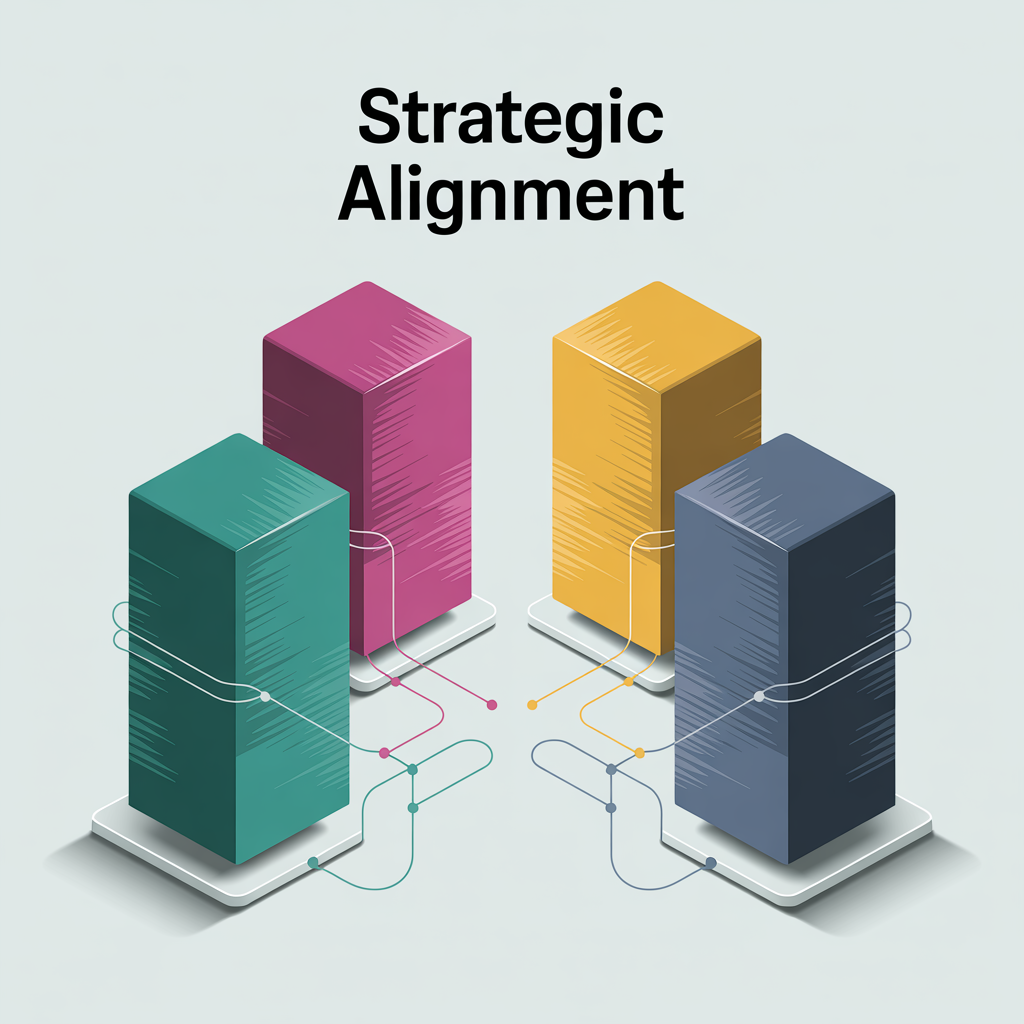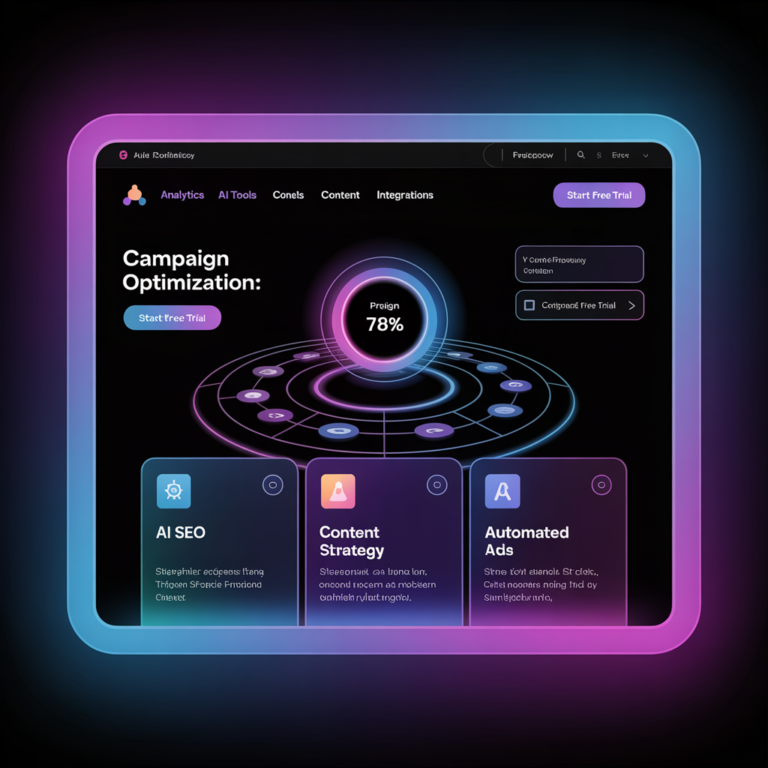E-E-A-T stands for Experience, Expertise, Authoritativeness, and Trustworthiness. These are the key signals Google looks at to decide how valuable and credible your content is. If you want your website to rank well and gain user trust, focusing on E-E-A-T is essential.
But here’s the twist—AI is changing the game. Artificial intelligence can help you boost these signals faster and smarter than ever before. This guide will show you exactly how AI can supercharge your E-E-A-T optimization.

Understanding E-E-A-T and Its Importance in SEO
What is E-E-A-T?
E-E-A-T is a framework Google uses to evaluate the quality of content. It helps search engines understand:
Experience: Has the content creator personally experienced or tested what they’re talking about?
Expertise: Does the author have deep knowledge or skill in the subject?
Authoritativeness: Is the author or website recognized as a reliable source by others?
Trustworthiness: Can users trust the content and the site hosting it?
Together, these factors help Google determine if your page deserves to rank highly.
How Google Evaluates E-E-A-T in Content Ranking
Google’s algorithms and human quality raters use E-E-A-T signals to:
Check if content is accurate and reliable
Confirm the author’s credentials or background
Review website reputation and backlinks
Evaluate user engagement and feedback
The better your E-E-A-T signals, the more likely your site will gain favorable rankings and attract quality traffic.
The Impact of Strong E-E-A-T on Organic Search Performance
Strong E-E-A-T doesn’t just help rankings; it improves:
User trust — Visitors stay longer and convert more
Brand reputation — Your site becomes a go-to resource
Reduced bounce rates — Users find what they want quickly
In short, investing in E-E-A-T is investing in sustainable SEO success.
Role of AI in Enhancing E-E-A-T
How AI Technologies Can Support Each E-E-A-T Pillar
AI tools can boost every part of E-E-A-T:
| E-E-A-T Pillar | How AI Helps |
|---|---|
| Experience | Analyze user behavior & personalize content |
| Expertise | Assist with research & fact-checking |
| Authoritativeness | Competitor analysis & backlink discovery |
| Trustworthiness | Content auditing & misinformation detection |
AI can handle repetitive tasks, analyze vast data quickly, and provide insights that help sharpen your content’s quality.
Types of AI Tools Used for Content and SEO Optimization
Some common AI-powered tools include:
Content generators to draft expert-level articles
SEO analyzers for keyword and competition research
Fact-checking tools to verify data and sources
User behavior analytics to optimize content experience
Backlink trackers for maintaining authority
Using these tools strategically lets you focus on high-level content creation while AI handles data and optimization.
Benefits of Integrating AI for E-E-A-T Improvements
Integrating AI into your E-E-A-T strategy can:
Save time on research and audits
Improve content accuracy and depth
Identify new authority-building opportunities
Detect and fix trust issues quickly
Enhance personalization for better user experience
AI is not here to replace humans but to empower your team to work smarter and faster.
Optimizing Experience with AI
Experience is about showing that the content creator has actually been there, done that. It’s about real-world knowledge that users can trust.
Using AI to Analyze User Intent and Engagement
AI tools can dig deep into how people interact with your site. They look at:
What pages users visit most
How long they stay
Which content they engage with (comments, shares)
What questions they ask or search for
By understanding user intent better, AI helps you tailor content that feels personal and relevant. This makes visitors feel like you get them.
AI-Driven Personalization to Improve User Experience
Personalization is key to showing experience. AI can:
Recommend content based on past visits
Adjust headlines or content blocks dynamically
Suggest products, services, or articles that match user needs
These small touches make your site feel welcoming and expert, which strengthens the experience signal.
AI Tools for UX/UI Testing and Content Relevance
AI-powered UX tools run A/B tests, heatmaps, and user flow analysis to spot where visitors drop off or get confused.
Here’s what AI can do for your user experience:
| Feature | Benefit |
|---|---|
| Heatmaps & Session Replay | Understand where users click and scroll |
| A/B Testing Automation | Quickly test different layouts or copy |
| Content Relevance Scores | Measure how well content matches intent |
Using these insights, you can optimize navigation and content to keep users engaged longer.
Boosting Expertise Through AI Content Insights
Expertise means your content is backed by real knowledge and solid research.
Leveraging AI for Expert Content Generation and Fact-Checking
AI can help draft content that’s accurate and insightful by:
Scanning authoritative sources for facts
Suggesting credible data, stats, and quotes
Flagging outdated or incorrect information
This reduces guesswork and improves the depth of your articles.
AI-Assisted Research and Citation Validation
Research can be tedious, but AI tools speed it up by:
Quickly summarizing research papers, news, and studies
Cross-checking references to ensure citations are valid
Suggesting relevant experts or thought leaders to quote
This gives your content a strong backbone of verified expertise.
Identifying Knowledge Gaps with AI Content Analysis
AI can compare your content against competitors and highlight missing topics or weak points.
For example, it can tell you:
Which subtopics your article lacks
Questions users ask that you haven’t answered
Keywords your competitors cover that you don’t
Filling these gaps makes your content more comprehensive and expert.
Strengthening Authoritativeness Using AI
Authoritativeness means being recognized as a trusted source by others in your field.
AI for Competitor Analysis and Benchmarking Authoritative Sources
AI tools scan the web to find:
Who your top competitors are
What kind of content and backlinks they have
How authoritative their domains and pages are
This helps you map out how to build your own authority.
Enhancing Backlink Strategies with AI-Powered Link Analysis
Backlinks from reputable sites boost your authority. AI helps by:
Identifying high-quality backlink opportunities
Monitoring your current backlink profile for toxic links
Analyzing competitor backlink sources for ideas
You can prioritize link building where it counts most.
AI Tools to Monitor Brand Mentions and Reputation
Staying on top of what people say about your brand is crucial. AI can:
Track brand mentions across the web and social media
Analyze sentiment to detect positive or negative buzz
Alert you instantly to potential reputation issues
This lets you respond fast and maintain trustworthiness.

Increasing Trustworthiness with AI Solutions
Trustworthiness is the foundation that keeps users coming back. It means your content and website are reliable, honest, and safe.
AI-Driven Content Audits for Accuracy and Compliance
AI can scan your entire website and spot:
Factual errors or inconsistencies
Outdated information that needs refreshing
Compliance issues with legal or industry standards
Automated content audits help you keep everything accurate and up to date, which builds trust naturally.
Detecting Misinformation and Bias with AI Algorithms
Misinformation is a big SEO no-no. AI tools can:
Analyze text for false or misleading claims
Flag biased or overly promotional language
Recommend neutral, balanced wording
This helps ensure your content stays factual and fair—exactly what Google and your audience want.
Using AI for Transparent Author Credentials and Disclosures
Showing who wrote the content and their qualifications matters a lot. AI can assist by:
Automatically adding author bios with credentials
Verifying author qualifications through public data
Managing disclosures for sponsored or affiliate content
Clear transparency makes visitors feel safe and confident in your site.
Practical AI Tools and Platforms for E-E-A-T Optimization
Let’s look at some AI tools that make E-E-A-T optimization easier and more effective.
| Tool Type | What It Does | Popular Options |
|---|---|---|
| Content Generation | Drafts quality content based on guidelines | Jasper, Writesonic, ChatGPT |
| SEO Analysis | Provides keyword research and competitor analysis | SEMrush, Ahrefs, Surfer SEO |
| Fact-Checking | Verifies facts and sources | Factmata, ClaimBuster |
| User Behavior Analytics | Tracks visitor interaction and engagement | Hotjar, Crazy Egg, Google Analytics |
| Backlink Monitoring | Analyzes backlinks and opportunities | Moz Link Explorer, Majestic |
Using a combination of these tools lets you cover all angles of E-E-A-T without getting overwhelmed.
Measuring the Impact of AI on E-E-A-T
How do you know if AI is actually helping your E-E-A-T signals? Measurement is key.
Key Metrics to Track E-E-A-T Improvements
Watch these indicators closely:
Content accuracy rate: How many factual errors are caught and fixed?
User engagement: Time on page, bounce rate, and pages per session
Authority growth: Number and quality of backlinks acquired
Brand sentiment: Positive vs. negative mentions online
Search rankings: Positions for target keywords linked to expert topics
Using AI Analytics for Continuous Optimization
AI doesn’t just set and forget. It provides ongoing insights by:
Monitoring content performance in real time
Suggesting updates based on latest trends or new data
Identifying emerging competitor moves
This makes your E-E-A-T strategy agile and future-proof.
Case Studies or Examples of AI Improving E-E-A-T Outcomes
For example, a healthcare website used AI to audit content for outdated medical info. After updating based on AI insights, their traffic increased by 35% and bounce rates dropped significantly.
Another e-commerce site used AI backlink analysis to find authoritative partners, boosting their domain authority and trustworthiness scores.
These stories show that AI can bring real results, not just theory.
Challenges and Ethical Considerations
AI is a powerful tool, but it’s not without its pitfalls. Using AI to optimize E-E-A-T comes with important challenges and ethical questions.
Potential Pitfalls of Relying on AI for E-E-A-T
Over-automation: Letting AI generate or optimize everything can lead to robotic, generic content that lacks a human touch.
Errors and biases: AI models sometimes produce mistakes or reflect biases in their training data. This can harm your credibility.
Dependence on tools: Relying too much on AI may reduce your team’s critical thinking and creativity.
AI is great for support, but human judgment must always lead the way.
Maintaining Human Oversight and Authenticity
Human involvement is essential to keep your content authentic. You should:
Review AI-generated content carefully before publishing
Add personal insights and unique experiences that AI can’t replicate
Make sure your authors’ voices and personalities come through
This balance helps your content feel genuine and trustworthy.
Ethical Use of AI in Content Creation and Optimization
Ethics matter, especially when AI can generate realistic text. Follow these best practices:
Transparency: Let readers know when AI assists with content creation.
Avoid plagiarism: Use AI responsibly and verify originality.
Respect privacy: Ensure AI tools handle user data securely and ethically.
Being ethical builds long-term trust with your audience and aligns with Google’s guidelines.
Breaking It All Down
AI is transforming how we optimize E-E-A-T signals. It helps us analyze user intent, fact-check content, discover backlink opportunities, and keep sites trustworthy. But AI isn’t a magic wand—it’s a tool to empower your expertise, not replace it.
By blending AI’s speed and data power with human insight and authenticity, you can create content that truly shines. Focus on experience, expertise, authoritativeness, and trustworthiness—and use AI smartly to supercharge those signals.
Remember: great SEO success comes from quality and credibility. AI can help you get there faster and smarter.
Frequenly Asked Questions
How can AI improve the credibility of author credentials on my website?
AI can help by automatically generating and updating detailed author bios, verifying credentials against trusted databases, and ensuring that disclosures such as sponsored content are clearly presented to build transparency and credibility.
What role does AI play in monitoring online brand reputation?
AI continuously scans the web and social media to track mentions of your brand, analyzes the sentiment behind those mentions, and alerts you to any negative feedback or potential reputation risks so you can respond promptly.
Can AI tools assist with compliance to industry regulations and standards?
Yes, AI-powered content auditing tools can check your website for compliance with legal, medical, or financial regulations by scanning for necessary disclosures, disclaimers, and ensuring that sensitive information is handled properly.
How does AI help in maintaining content freshness over time?
AI monitors content performance and detects outdated or underperforming articles, suggesting updates or additions based on the latest information, trends, and user interests to keep your content relevant.
Is AI useful for analyzing competitor E-E-A-T strategies?
Absolutely. AI tools can analyze competitor websites to identify their strengths in experience, expertise, authority, and trustworthiness, helping you discover opportunities to improve your own content and backlink profile.
What are some indicators that AI-optimized E-E-A-T efforts are successful?
Indicators include improved user engagement metrics, higher search rankings, increased referral traffic from authoritative sites, positive brand sentiment, and reduced bounce rates.
How does AI enhance fact-checking compared to manual methods?
AI fact-checkers can process large volumes of information quickly, cross-reference multiple authoritative sources, and highlight discrepancies or errors that might be missed in manual checks, increasing accuracy and efficiency.
Can AI personalize content for different audience segments to improve E-E-A-T?
Yes, AI can analyze audience data to deliver tailored content variations that address specific needs, preferences, or expertise levels, making the user experience more relevant and trustworthy.
Offsite Resources
Moz — A leading SEO resource offering comprehensive guides and tools on SEO best practices, including E-A-T optimization.
Ahrefs — Provides powerful SEO tools and educational content about backlinks, keyword research, and content quality.
Search Engine Journal — A trusted publication delivering the latest SEO news, tips, and expert insights on AI and content strategies.
Neil Patel — Renowned marketing expert offering actionable advice on SEO, content marketing, and using AI tools effectively.
Content Marketing Institute — Focuses on content creation strategies that build expertise, authority, and trust with audiences.
Google Search Central — Official Google resource to understand how Google evaluates content quality and E-E-A-T signals.
HubSpot — Provides tools and educational resources for inbound marketing, SEO, and AI-powered content optimization.

What's Next?
The SEO insights shared on this page come directly from our co-founder, Matt LaClear, who has successfully led over 13,277 SEO campaigns since 2009. With more than a decade of hands-on experience, Matt knows exactly what it takes to help small businesses stand out online.
Get Your Free Custom SEO Strategy Call
Ready to boost your SEO and grow your business? Matt is offering a free, no-obligation strategy call where you’ll get:
Personalized SEO recommendations tailored to your unique needs
Clear, actionable steps to increase your online visibility
Expert insights aligned with your business goals
Don’t miss this chance to get advice backed by real experience.
Claim your free SEO strategy call today and start seeing results!

